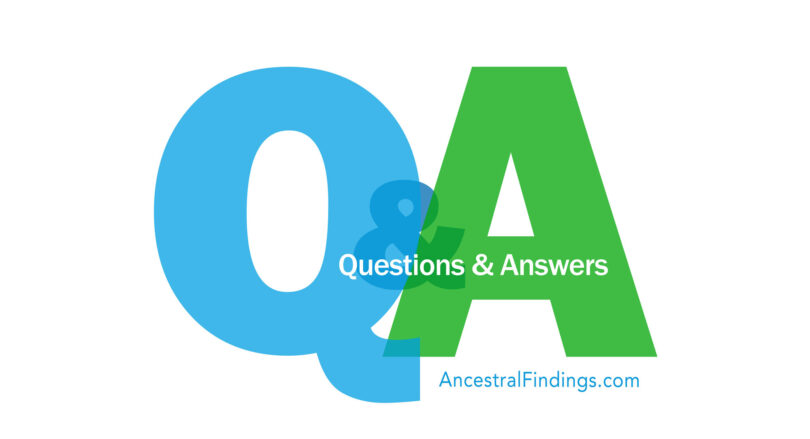Throughout the past 28 years, I’ve received numerous genealogy questions. Ranging from safeguarding ancestral legacies for future generations to navigating the complexities of DNA testing. I’m eager to share these frequently asked questions that have enriched my experience.
What are some initial steps to preserving a family tree?
Will: The first step is to document what you know. Start with immediate family and move backward, collecting names, dates, places, and stories. Then, you can begin to organize this data in digital genealogy software or a paper-based system, whichever you prefer.
Why is documentation so important?
Will: Documentation serves as proof of your research. You’ll want to back up your findings with birth certificates, marriage licenses, census records, etc. This makes your family tree credible and helps future generations carry on your work.
Should people focus on digital or physical preservation?
Will: Both have their merits. Digital files are easily sharable and searchable, but they can also become corrupted. Physical copies, like printed family trees and photocopies of documents, aren’t dependent on technology, but they can deteriorate or get lost.
What are some other ways to preserve family history?
Will: Oral histories are incredibly valuable. Sit down with older family members and record their stories. You can also preserve photos, letters, and heirlooms. Be sure to document the context and significance of each item.
How often should one update their family tree?
Will: As often as new information comes in. Families are always growing and changing, and your tree should reflect that. Also, periodically check for new databases and records; you never know what you’ll find.
What role does DNA testing play in modern genealogy?
Will: DNA testing can be a game-changer, especially when you hit a brick wall in your research. It can help confirm relationships, identify ethnic origins, and connect you with distant relatives. Just remember, DNA is a tool in your genealogy toolbox, not a standalone answer.
How can people ensure privacy while sharing their family tree?
Will: Privacy is a significant concern. If you’re using digital platforms, look for settings that allow you to control who can see your data. Also, be cautious about sharing sensitive information, especially regarding living individuals, without their consent.
How can younger generations get involved in family history?
Will: Kids love stories, so start by telling them family tales you know. Get them involved in interviews with older relatives, let them handle family heirlooms, or even engage them in a “scavenger hunt” to find ancestors in old photos. Make it fun and interactive.
What should one do when they encounter conflicting information?
Will: Conflicting information is common. When this happens, weigh the reliability of each source and consider the context. Sometimes, official records are incorrect, or oral histories have changed over time. Multiple corroborating sources usually offer the most reliable conclusion.
What are some common mistakes people make?
Will: One of the biggest mistakes is not citing sources. You might remember where you found a piece of information today, but will you remember it in five years? Another issue is ignoring the female line; women’s history is just as important but often overlooked.
Is it beneficial to collaborate with other genealogists?
Will: Absolutely. Collaboration can lead to new avenues of research and provide emotional support when you hit a snag. Online forums, local genealogy groups, and even social media can be great platforms for collaboration.
Any advice for those who feel overwhelmed by the process?
Will: It’s easy to feel overwhelmed. Start small, focus on one branch or individual at a time, and set achievable goals. Take breaks if needed; remember, every family historian has faced challenges. Persistence is key.
Any final tips?
Will: Remember that genealogy is a marathon, not a sprint. You won’t find all the answers overnight. But each puzzle piece is a step closer to understanding your family’s unique story. So keep digging, documenting, and, most importantly, sharing what you discover.

